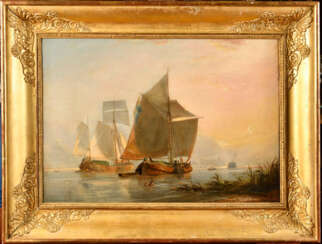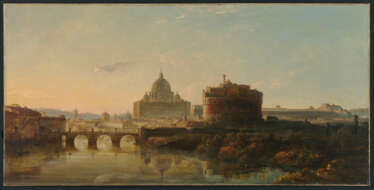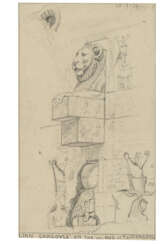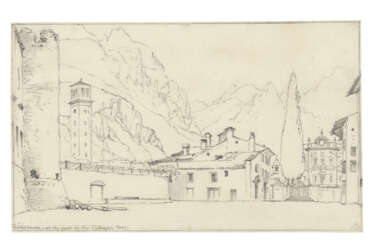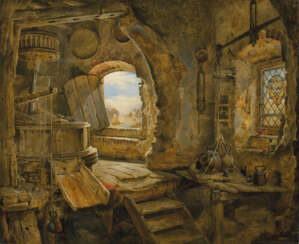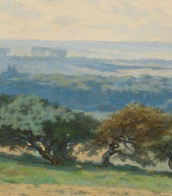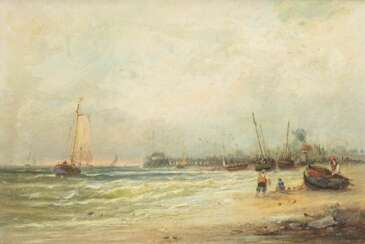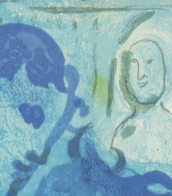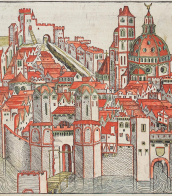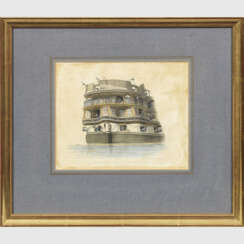edward william cooke (1811 - 1880)
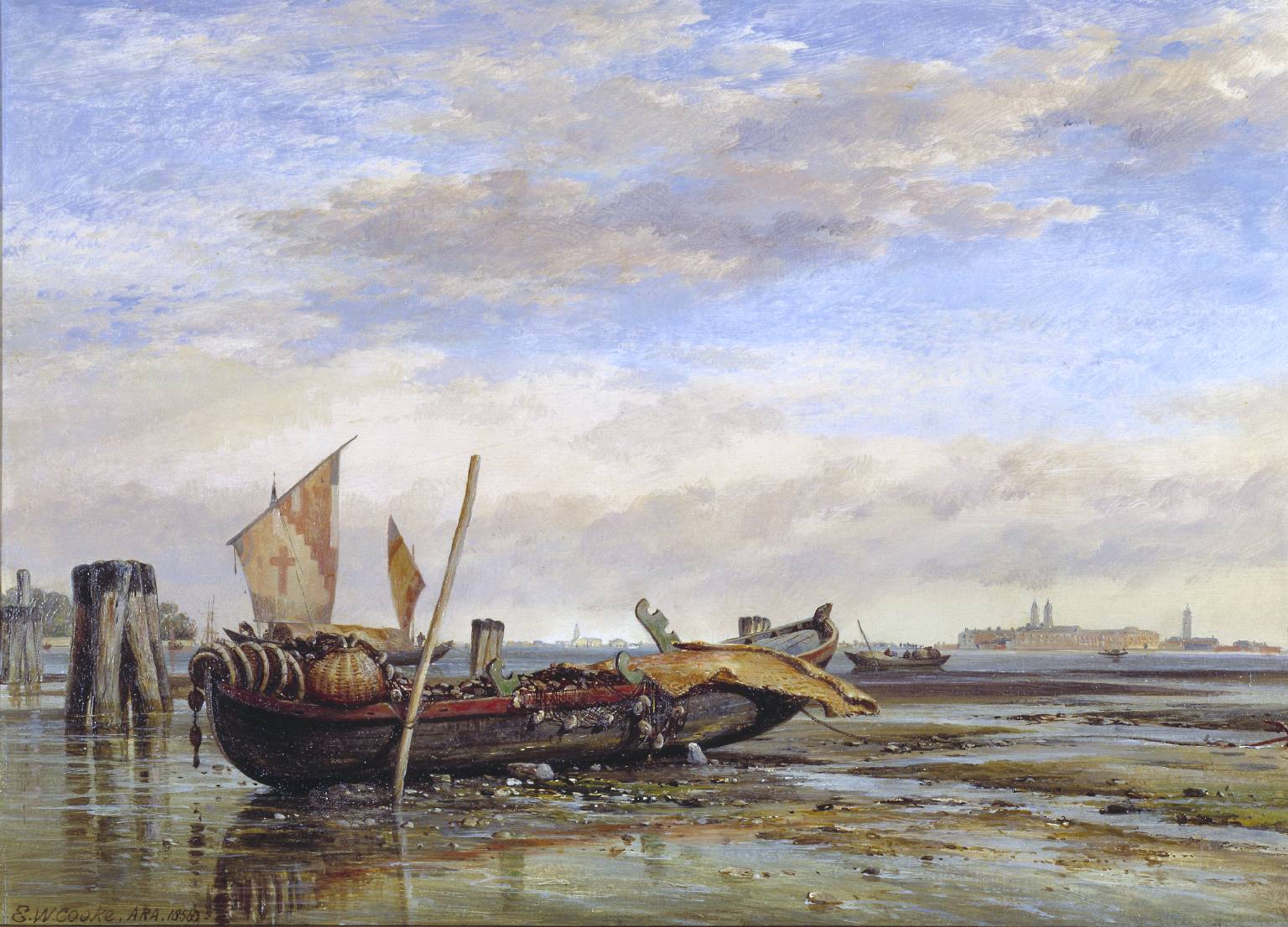
Edward William Cooke, a distinguished English artist, is celebrated for his mastery in maritime painting. His upbringing in an artistic family, with his father and uncle being notable engravers, significantly influenced his early development as an artist. Cooke's talent extended beyond the marine realm, as he was proficient in geological and botanical illustrations as well.
His works, which often depicted detailed ships and coastal scenes, were heavily inspired by 17th-century Dutch marine artists, a style that became synonymous with his name. Edward William Cooke's paintings, such as "Beaching a Pink at Scheveningen," exhibited at the Royal Academy, reflect his meticulous study of natural and light effects, particularly influenced by his travels across Europe, including the Netherlands, Scandinavia, and Venice.
Edward William Cooke's diverse interests led him to become a Fellow of several prestigious societies, including the Linnean Society, the Geological Society, and the Zoological Society. His contributions to the arts and sciences were further acknowledged when he was elected a Fellow of the Royal Society in 1863.
For art and antique enthusiasts, Edward William Cooke's legacy is a testament to his profound impact on maritime art, making his works valuable pieces in collections worldwide. If you're keen on exploring more about Cooke's art and contributions, consider signing up for updates on new product sales and auction events related to his works.
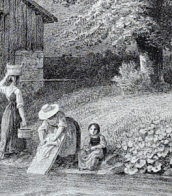

Edward William Cooke, a distinguished English artist, is celebrated for his mastery in maritime painting. His upbringing in an artistic family, with his father and uncle being notable engravers, significantly influenced his early development as an artist. Cooke's talent extended beyond the marine realm, as he was proficient in geological and botanical illustrations as well.
His works, which often depicted detailed ships and coastal scenes, were heavily inspired by 17th-century Dutch marine artists, a style that became synonymous with his name. Edward William Cooke's paintings, such as "Beaching a Pink at Scheveningen," exhibited at the Royal Academy, reflect his meticulous study of natural and light effects, particularly influenced by his travels across Europe, including the Netherlands, Scandinavia, and Venice.
Edward William Cooke's diverse interests led him to become a Fellow of several prestigious societies, including the Linnean Society, the Geological Society, and the Zoological Society. His contributions to the arts and sciences were further acknowledged when he was elected a Fellow of the Royal Society in 1863.
For art and antique enthusiasts, Edward William Cooke's legacy is a testament to his profound impact on maritime art, making his works valuable pieces in collections worldwide. If you're keen on exploring more about Cooke's art and contributions, consider signing up for updates on new product sales and auction events related to his works.
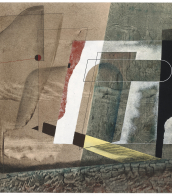

Edward William Cooke, a distinguished English artist, is celebrated for his mastery in maritime painting. His upbringing in an artistic family, with his father and uncle being notable engravers, significantly influenced his early development as an artist. Cooke's talent extended beyond the marine realm, as he was proficient in geological and botanical illustrations as well.
His works, which often depicted detailed ships and coastal scenes, were heavily inspired by 17th-century Dutch marine artists, a style that became synonymous with his name. Edward William Cooke's paintings, such as "Beaching a Pink at Scheveningen," exhibited at the Royal Academy, reflect his meticulous study of natural and light effects, particularly influenced by his travels across Europe, including the Netherlands, Scandinavia, and Venice.
Edward William Cooke's diverse interests led him to become a Fellow of several prestigious societies, including the Linnean Society, the Geological Society, and the Zoological Society. His contributions to the arts and sciences were further acknowledged when he was elected a Fellow of the Royal Society in 1863.
For art and antique enthusiasts, Edward William Cooke's legacy is a testament to his profound impact on maritime art, making his works valuable pieces in collections worldwide. If you're keen on exploring more about Cooke's art and contributions, consider signing up for updates on new product sales and auction events related to his works.


Edward William Cooke, a distinguished English artist, is celebrated for his mastery in maritime painting. His upbringing in an artistic family, with his father and uncle being notable engravers, significantly influenced his early development as an artist. Cooke's talent extended beyond the marine realm, as he was proficient in geological and botanical illustrations as well.
His works, which often depicted detailed ships and coastal scenes, were heavily inspired by 17th-century Dutch marine artists, a style that became synonymous with his name. Edward William Cooke's paintings, such as "Beaching a Pink at Scheveningen," exhibited at the Royal Academy, reflect his meticulous study of natural and light effects, particularly influenced by his travels across Europe, including the Netherlands, Scandinavia, and Venice.
Edward William Cooke's diverse interests led him to become a Fellow of several prestigious societies, including the Linnean Society, the Geological Society, and the Zoological Society. His contributions to the arts and sciences were further acknowledged when he was elected a Fellow of the Royal Society in 1863.
For art and antique enthusiasts, Edward William Cooke's legacy is a testament to his profound impact on maritime art, making his works valuable pieces in collections worldwide. If you're keen on exploring more about Cooke's art and contributions, consider signing up for updates on new product sales and auction events related to his works.


Edward William Cooke, a distinguished English artist, is celebrated for his mastery in maritime painting. His upbringing in an artistic family, with his father and uncle being notable engravers, significantly influenced his early development as an artist. Cooke's talent extended beyond the marine realm, as he was proficient in geological and botanical illustrations as well.
His works, which often depicted detailed ships and coastal scenes, were heavily inspired by 17th-century Dutch marine artists, a style that became synonymous with his name. Edward William Cooke's paintings, such as "Beaching a Pink at Scheveningen," exhibited at the Royal Academy, reflect his meticulous study of natural and light effects, particularly influenced by his travels across Europe, including the Netherlands, Scandinavia, and Venice.
Edward William Cooke's diverse interests led him to become a Fellow of several prestigious societies, including the Linnean Society, the Geological Society, and the Zoological Society. His contributions to the arts and sciences were further acknowledged when he was elected a Fellow of the Royal Society in 1863.
For art and antique enthusiasts, Edward William Cooke's legacy is a testament to his profound impact on maritime art, making his works valuable pieces in collections worldwide. If you're keen on exploring more about Cooke's art and contributions, consider signing up for updates on new product sales and auction events related to his works.
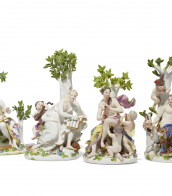

Edward William Cooke, a distinguished English artist, is celebrated for his mastery in maritime painting. His upbringing in an artistic family, with his father and uncle being notable engravers, significantly influenced his early development as an artist. Cooke's talent extended beyond the marine realm, as he was proficient in geological and botanical illustrations as well.
His works, which often depicted detailed ships and coastal scenes, were heavily inspired by 17th-century Dutch marine artists, a style that became synonymous with his name. Edward William Cooke's paintings, such as "Beaching a Pink at Scheveningen," exhibited at the Royal Academy, reflect his meticulous study of natural and light effects, particularly influenced by his travels across Europe, including the Netherlands, Scandinavia, and Venice.
Edward William Cooke's diverse interests led him to become a Fellow of several prestigious societies, including the Linnean Society, the Geological Society, and the Zoological Society. His contributions to the arts and sciences were further acknowledged when he was elected a Fellow of the Royal Society in 1863.
For art and antique enthusiasts, Edward William Cooke's legacy is a testament to his profound impact on maritime art, making his works valuable pieces in collections worldwide. If you're keen on exploring more about Cooke's art and contributions, consider signing up for updates on new product sales and auction events related to his works.
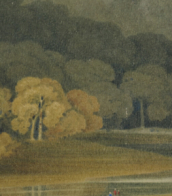

Edward William Cooke, a distinguished English artist, is celebrated for his mastery in maritime painting. His upbringing in an artistic family, with his father and uncle being notable engravers, significantly influenced his early development as an artist. Cooke's talent extended beyond the marine realm, as he was proficient in geological and botanical illustrations as well.
His works, which often depicted detailed ships and coastal scenes, were heavily inspired by 17th-century Dutch marine artists, a style that became synonymous with his name. Edward William Cooke's paintings, such as "Beaching a Pink at Scheveningen," exhibited at the Royal Academy, reflect his meticulous study of natural and light effects, particularly influenced by his travels across Europe, including the Netherlands, Scandinavia, and Venice.
Edward William Cooke's diverse interests led him to become a Fellow of several prestigious societies, including the Linnean Society, the Geological Society, and the Zoological Society. His contributions to the arts and sciences were further acknowledged when he was elected a Fellow of the Royal Society in 1863.
For art and antique enthusiasts, Edward William Cooke's legacy is a testament to his profound impact on maritime art, making his works valuable pieces in collections worldwide. If you're keen on exploring more about Cooke's art and contributions, consider signing up for updates on new product sales and auction events related to his works.


Edward William Cooke, a distinguished English artist, is celebrated for his mastery in maritime painting. His upbringing in an artistic family, with his father and uncle being notable engravers, significantly influenced his early development as an artist. Cooke's talent extended beyond the marine realm, as he was proficient in geological and botanical illustrations as well.
His works, which often depicted detailed ships and coastal scenes, were heavily inspired by 17th-century Dutch marine artists, a style that became synonymous with his name. Edward William Cooke's paintings, such as "Beaching a Pink at Scheveningen," exhibited at the Royal Academy, reflect his meticulous study of natural and light effects, particularly influenced by his travels across Europe, including the Netherlands, Scandinavia, and Venice.
Edward William Cooke's diverse interests led him to become a Fellow of several prestigious societies, including the Linnean Society, the Geological Society, and the Zoological Society. His contributions to the arts and sciences were further acknowledged when he was elected a Fellow of the Royal Society in 1863.
For art and antique enthusiasts, Edward William Cooke's legacy is a testament to his profound impact on maritime art, making his works valuable pieces in collections worldwide. If you're keen on exploring more about Cooke's art and contributions, consider signing up for updates on new product sales and auction events related to his works.

